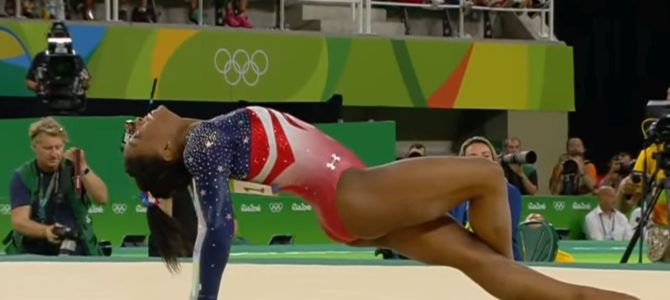
In these dog days of summer, political observers despair that not even the Olympics can help us escape from a disenchanting election year. After all, if the “choice” between the least popular presidential candidates ever is bad, wait ‘til you see the depths of the economic and political crisis in host nation Brazil (where the president was impeached and House speaker suspended). That’s not to mention shoddy venue construction and other logistical snafus, toxic water for outdoor aquatic events, apparently more polluted air than even during the 2008 Beijing Games, and the omnipresent threat of the Zika virus.
Then you have the Russian track and field squad’s disqualification for systemic doping, although the International Olympic Committee (IOC) let the rest of the team off.
More broadly, the media again remind us of how hyper-capitalism and the threat of terrorism have spoiled the world’s preeminent athletic event. Pundits lament the passing of a purer age, when doctors trained in their spare time—I just came across another encomium to “Chariots of Fire”—and competition was about more than endorsement contracts. These Cassandras habitually predict the demise of the Olympics as modern society wreaks havoc on the sacrosanct traditions of the ancients.
Yet this idea that the games should promote a kinder, gentler world, the apotheosis of human progress, reflects sentimentalized history. Since the end of the Cold War, the Olympics have thrown off the corrosive chains of ideology to revert to the values of the original games, among which were the dominance of sports for their own sake rather than as a metaphor for national advancement.
Suspending Politics for Games
The standard view of the Greek Olympics as a halcyon festival bringing amateur sportsmen together in the name of peace and brotherhood is a remnant of nineteenth-century Romanticism institutionalized by aristocrats like modern Olympics founder Pierre de Coubertin. Adolf Hitler, who staged the 1936 Berlin games, was taken in by a similar vision of nationalism via physical perfection.
The ancient reality could not have been further from these modern misconceptions, as Greek armies routinely violated the Olympic truce—sometimes battling in the Olympic sanctuary itself—and competitors ingested whatever performance-enhancing substances were available. Individual achievement was valued much more than participation, and wealth superseded philosophical ideals.
Pindar, the lyric poet whose odes tell us much of what we know about the early Olympians, wrote at the behest of moneyed athletes, who sought personal glory rather than the vindication of their city-state’s political system. The great champion Alcibiades used his prestige to gain fame and riches, often at the expense of “national interest.” Further, the ancient heroes were Panhellenic—Athenian kids cheered for Spartan Michael Phelpses—and the victors’ olive wreaths were intrinsically worth as much as the medals doled out in Rio. (Although the authorities didn’t force the winners to pay tax on them, as does the IRS.)
The modern Olympics, in allowing politics to overshadow sports, broke with their predecessors. After the Munich tragedy, the 1976 Montreal event left a trail of debt that took three decades for Quebecois taxpayers to pay off and saw the first of a series of boycotts. The Olympics had lost their ancient bearings.
Nobody knew it at the time, but the 1988 Seoul Olympics were a watershed. These games were the first to be free from major turmoil since Tokyo 1964. More importantly, they represented the last Olympiad of the Cold War, with the Berlin Wall falling the next year, followed by the dissolution of the Evil Empire.
The twentieth century took us through almost continual political upheaval, most of it defined by bipolar geopolitics and the specter of nuclear Armageddon. With that edifice of pretension eroded, the games were free to become athletic spectacles again.
A Return to the Joy of Sports
Under today’s conditions—the populism we see is a response to an historic cultural homogenization, economic interdependence, and relative decline of the nation-state even with respect to our enemies—international athletic competition assumes an ever-more parallel course to that of the world at large. As with all sporting events, the Olympics of the past quarter-century have become exponentially more entertainment-oriented. Even the proliferation of “crass commercialism” is a positive step because it returns the Olympics to the role they fulfill best: providing a forum for the globe’s finest athletes to show the rest of us a good time.
The Olympics now bring us the absolute best, without regard to color, creed, or iron curtain. The nature of the Olympic “movement,” meanwhile, has returned to the entertainment, ritual, and indeed athletic value of the original games—meaning it’s not a movement. Gone is the sham of amateurism, as athletes are once more individuals, not tools of the state.
Tradition, meet meritocracy; Coubertin, meet Milton Friedman (who would’ve turned 104 on July 31). Counter the conventional narrative, the symbiotic relationship between sports and society has reverted to its original, proper status under the ancient Greeks.
Returning to 2016, the various Rio “scandals” are mere sound and fury compared to the Cold War-era misuse of sports for political purposes—or, more prosaically, the lack of snow at the 2014 Winter Games in subtropical Sochi. Even concerns over the origin of team attire betray a lack of understanding about international trade. The very reason consumers don’t have to be polo-playing scions to afford the iconic wares of Ralph Lauren—which is outfitting the U.S. team at no cost to taxpayers—is because the company seeks out low-cost manufacturing.
The grandees of both the IOC and elite media peddle utopian myths when they should recognize that the Olympics are nothing more than the very best the sports world has to offer. Everyone should just relax, grab a caipirinha, and watch some more digital streaming.
Correction: Milton Friedman would have turned 104 this year, not 100.









